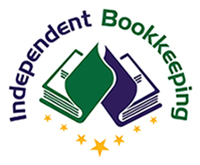Navigating the financial responsibilities, particularly when it comes to taxes, can be quite the task. Self-Assessment tax returns are a key component of this process, especially for individuals and sole traders looking to ensure they’re paying the right amount of tax. Whether you’ve stepped into self-employment, started a side job, or have other income that isn’t taxed at source, knowing when to register for Self-Assessment is essential to avoid penalties from HM Revenue and Customs (HMRC). This guide will walk you through the situations when registering for Self-Assessment becomes necessary.
1. Starting Self-Employment
As soon as you begin working for yourself, you need to let HMRC know. This is important because you’ll need to pay taxes and National Insurance contributions on your earnings. Ideally, you should register by the 5th of October in your business’s second tax year, but doing it early is advisable.
2. Entering a Partnership
If you’re in a business partnership, you also have to register for Self-Assessment. Being in a partnership means you and your partners share the responsibility for the business’s taxes.
3. Earning Rental Income
If you earn money from renting out property, you’re required to declare this income through Self-Assessment, as it’s a source of income that needs to be taxed.
4. Receiving Untaxed Income
This includes income from various sources such as tips, commission, savings, investments, dividends, or income from abroad. If this income isn’t already taxed, you’ll need to declare it through Self-Assessment.
5. Being a Company Director
If you’re a director of a company (except if it’s a non-profit without any pay or benefits), you’ll need to file a Self-Assessment tax return to ensure you’re paying tax on any income you receive from the company.
6. Having High Income or Complex Tax Affairs
Individuals with a high income (over £100,000) or complex tax situations might need to file a Self-Assessment tax return. This includes those who need to pay Capital Gains Tax or receive Child Benefit and earn over £50,000.
7. Earning Over £1,000 From Self-Employment or Renting
There’s a ‘trading allowance’ and ‘property allowance’ that lets you earn up to £1,000 from self-employment or property before you need to register for Self-Assessment. If your income exceeds this limit, it’s time to register. This allowance is for Gross income, not profit.
Conclusion
Understanding when to register for Self-Assessment can help you stay compliant with tax laws, avoiding penalties. If you’re unsure about your situation, it’s wise to seek advice from a professional or directly from HMRC to ensure you’re meeting all your tax responsibilities in Scotland. Managing your tax affairs properly provides peace of mind and lets you concentrate on your work or business without unnecessary stress.

